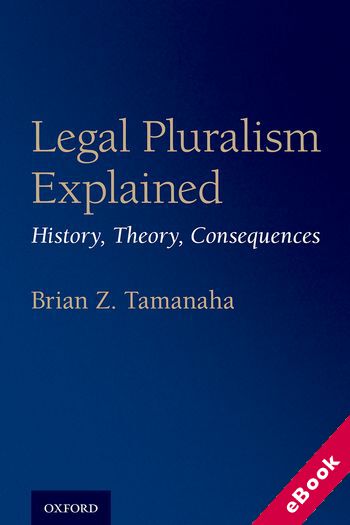
The device(s) you use to access the eBook content must be authorized with an Adobe ID before you download the product otherwise it will fail to register correctly.
For further information see https://www.wildy.com/ebook-formats
Once the order is confirmed an automated e-mail will be sent to you to allow you to download the eBook.
All eBooks are supplied firm sale and cannot be returned. If you believe there is a fault with your eBook then contact us on ebooks@wildy.com and we will help in resolving the issue. This does not affect your statutory rights.
Legal pluralism involves the coexistence of multiple forms of law. This includes state law, international law, transnational law, customary law, religious law, indigenous law, and the law of distinct ethnic or cultural communities. Legal pluralism is a subject of discussion today in legal anthropology, legal sociology, legal history, comparative law, international law, transnational law, jurisprudence, and law and development scholarship. This book places legal pluralism in historical context going back to the Medieval period, describes the origins of legal pluralism in postcolonial countries and its implications today, identifies manifestations of legal pluralism within Western societies, discusses contemporary transnational legal pluralism, identifies problems with current theoretical accounts of legal pluralism, and articulates an approach to legal pluralism that avoids theoretical problems and is useful for social scientists, theorists, and law and development scholars and practitioners.